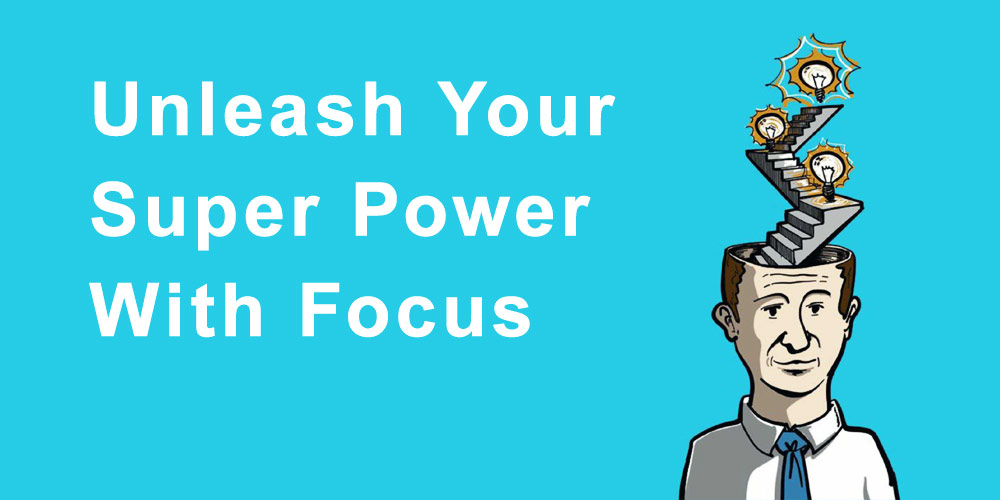
Thanks to today's digital environment and packed schedules, it seems like multitasking has become a default mode for most of us. While multitasking is an important skill, it also has its downsides.
Why Focus Strength Is So Important
It reduces our ability to sustain attention for long periods of time, "which can literally lead to a drop in IQ", says David Rock, co-founder of the NeuroLeadership Institute and author of Your Brain at Work.
It can also be a case of one of the most well-known disorders (ADHD or ADD) whose main difficulty is sustained attention. This level of sustained attention disorder can make it impossible to complete a majority daily tasks.
Levels of Concentration
The level of concentration that a project or task may have is based on its complexity. The more complex it is the more intense concentration for longer periods of time that is going to be needed.
Surface and Deeper Level Projects
This can be divided into two types of projects. "Surface level projects and deeper level projects", says Cal Newport, the associate professor of Computer Science at Georgetown University and author of Deep Work.
One's that require intense undistracted focus and one's that do not. You can focus at surface level if you are doing more logistical type work like emails and meetings. But if you are doing deeper level complex projects like development and research you will need to focus much harder.
Strengthening Focus
Let's get started on strengthening your power of concentration and focus.
1.Drink Some Water
This may sound simple but in a study published in the Journal of Nutrition, participants struggled with concentration and mental skills when they were even mildly dehydrated. If we're going to hit the mental gym we don't want our performance to plummet from hydration.
2.Take On The Harder Tasks First
We tend to start with easier tasks earlier in the day and building up to the toughest one. This can drain your energy and lower focus. You will also be more inclined to pay attention and complete harder tasks when you can look forward to the easier ones.
3.Write A Plan
Having a written plan for the day helps us to be more deliberate in ignore distractions. Use keywords so not to overload yourself with too many details. This written plan can also be used as benchmarks, to check your progress throughout the day. Being more realistic on how you are going to allocate your time will help you from veering off course.
4.Committing Your Attention To A Single Task
Turn off all distraction and if your mind wonders, just return to the task at hand. The problem is, once we get distracted it can take an average of 25 minutes to return to our original task. Like the body the brain has a limited amount of strength and endurance. So the less we shift our attention the more diligent we can be with our work.
5.Mental Exercises
Exercising the mind muscle is a great way to increase focus. Try some of these brain exercises as they will serve your attention span well.
- Memory Card Games.
- Memorizing stuff like a poem, song or a verse of scripture each week.
- Read long articles or a book slowly for extended amount of time. Increasing your reading times by 5 minutes a day to build up focus and willpower.
- Meditation can boost your attention span significantly by helping you keep calm, cool, and collected.
Conclusion
Having an understanding of your brain’s limitations will help you set your focus goals and improve your productivity. Building your ability to focus is like strengthening your body. Think of your focus as a muscle and how it requires continual exercise to stay fit.